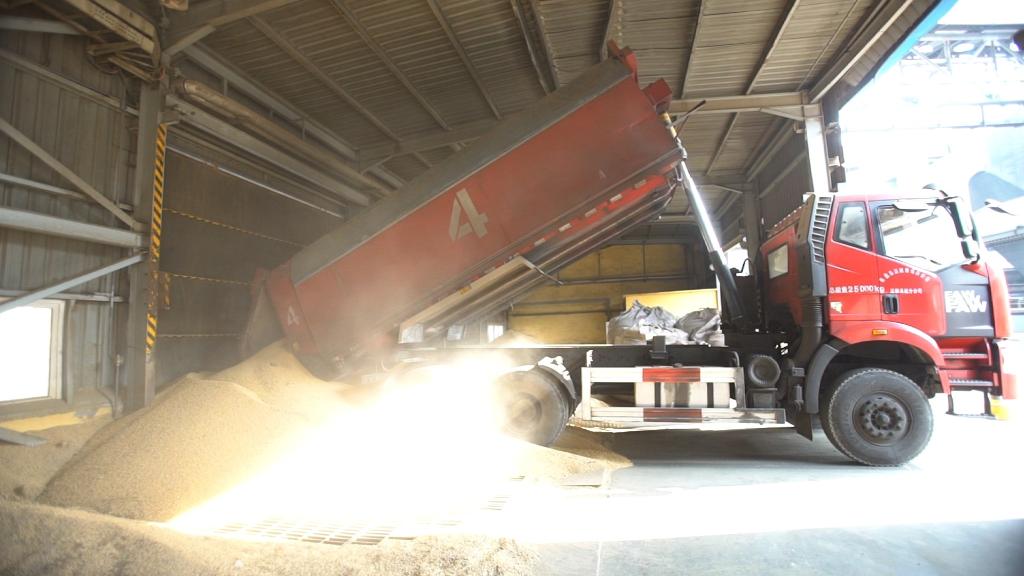
A back-and-forth between Elon Musk and President Donald Trump on Thursday highlighted the challenges automakers face when doing business in China.
After Trump jotted off a tweet about America's "massive" trade deficit with the Asian nation, Musk responded with a question: "Do you think the US & China should have equal & fair rules for cars?"
Tesla (TSLA) vehicles shipped to China face a 25% import tax while a car imported from China to the United States is only taxed about 2.5%, Musk said, "a tenfold difference."
Trump read the tweet aloud during an event on Thursday formalizing his administration's plans for a 25% tariff on steel and a 10% tariff on aluminum imports, respectively. Those tariffs are unrelated to Musk's tweets, but Trump hinted during his speech that he may one day raise taxes on imported Chinese cars.
"We just want fairness," Trump said after reading Musk's tweet. "We're going to be doing a reciprocal tax program at some point — so that if China is going to charge us 25% or if India is going to charge us 75%. ... We're going to be at those same numbers."
Musk said in another tweet earlier in the day that he is "against import duties in general, but the current rules make things very difficult. It's like competing in an Olympic race wearing lead shoes."
"We raised this with the prior administration and nothing happened. Just want a fair outcome, ideally where tariffs/rules are equally moderate. Nothing more. Hope this does not seem unreasonable," another tweet said.
China is the world's largest car market. And most major American vehicle manufacturers have jointly-owned plants in China so they can avoid steep import tariffs.
Related: These American companies could be hurt by Trump's tariffs
But Tesla does not. The company wants to open up a factory in Shanghai, but Bloomberg reported last month that Tesla still hasn't landed a deal with local authorities to get it done.
Musk made it clear in a tweet Thursday that he takes issue with China's rule against foreign car makers owning more than half of any manufacturing plant in the country.
Mary Lovely, a trade expert and senior fellow at the nonpartisan Peterson Institute, said Tesla is likely hesitant to agree to joint ownership because it "has valuable intellectual property," and China has a big interest in boosting its electric vehicle know-how.
There are several native Chinese electric car startups that hope to one day compete with Tesla.
Lovely said there's a reason why the United States and China have such drastically different tariff rates for imported cars. It goes back to when China first joined the World Trade Organization, and it hashed out a deal with the US to keep car tariffs high while slashing import taxes on other goods, such as soybeans.
"China has always seen itself as a country that needs a strong domestic automobile industry," Lovely said.
And in the past, the 2.5% tariff rate for Chinese cars imported to the US hasn't mattered much. Demand for vehicles is so high in China that the country hardly ships any vehicles abroad.
Related: 11 countries sign TPP trade pact without the United States
That, however, is changing.
Volvo (VOLAF)and General Motors (GM) both began selling Chinese-built cars in the United States in recent years. And as the Chinese market saturates, the country is poised to become a major car exporter.
That could mean it's time to renegotiate import and export tariffs, Lovely said. But she doesn't believe Trump's plan to delve into retaliatory tariffs marks the right approach.
"The fact that Trump brought this up shows that he doesn't know how trade negotiations actually happen," she said. "Just threatening has never worked with the Chinese."
Musk's twitter exchange with Trump came one week after the president announced the tariff plan, sparking fears of a trade war.
The new tariffs will initially exclude Canada and Mexico, Trump said Thursday. The duties will take effect in 15 days.
Last year, there appeared to be no love lost between Trump and Musk. The billionaire CEO quit two White House business advisory councils in protest after Trump decided to pull the US out of the Paris climate agreement.
But Trump has delivered glowing public comments about Musk in recent days, specifically about a historic rocket launch conducted by Musk's SpaceX last month. The inaugural launch of Falcon Heavy, the most powerful rocket in operation, captured the public by landing two of the rocket's side boosters after liftoff. They conducted a synchronized touchdowns back on ground pads in Florida.
Trump gushed about the spectacle to reporters on Thursday.
"To me, that was more amazing than watching the rocket go up because I've never seen that before. Nobody has seen it before, where they're saving the boosters. They came back without wings or without anything, they landed so beautifully," Trump said.


